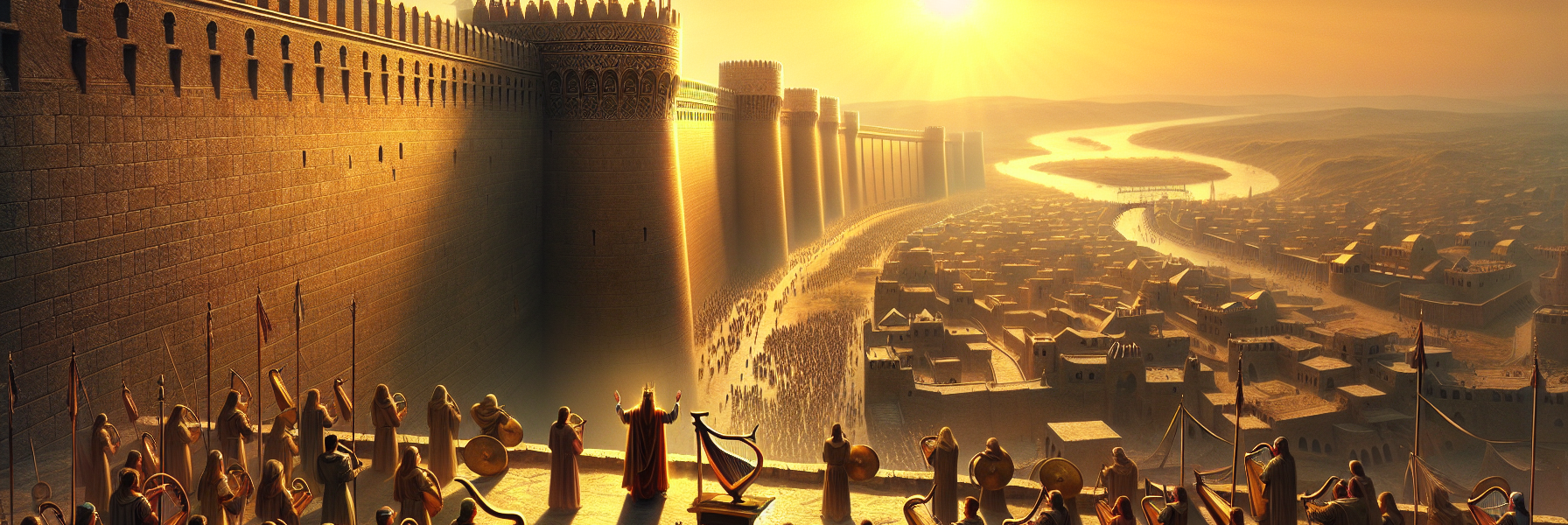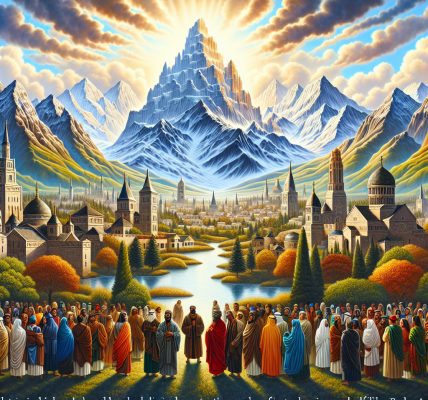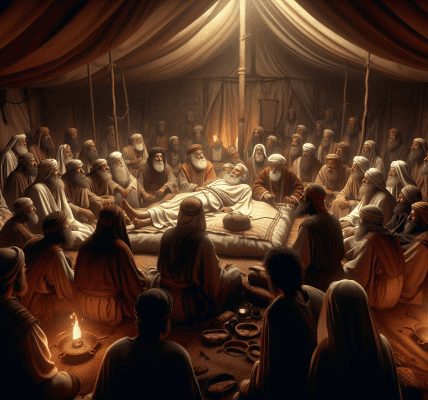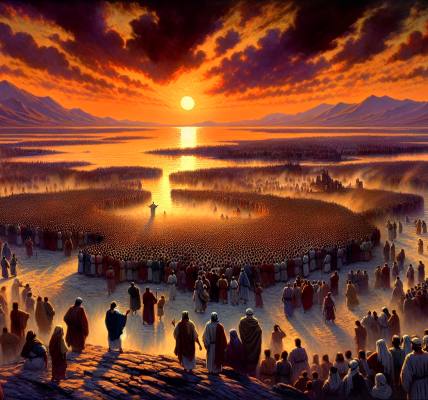**The Joyful Dedication of Jerusalem’s Walls**
The sun rose over Jerusalem, casting golden rays upon the newly rebuilt walls, their stones gleaming as if heaven itself had polished them. The city buzzed with anticipation, for today was a day of celebration—the dedication of the walls. Nehemiah, the governor, stood atop the broad ramparts, his heart swelling with gratitude to the Lord. Years of labor, opposition, and prayer had led to this moment. The people of Israel had returned from exile, and now, their beloved city stood strong once more.
Nehemiah had summoned the Levites from all their villages to join in the ceremony. Priests and musicians, descendants of Asaph, Heman, and Jeduthun, arrived with their harps, lyres, and cymbals, their voices tuned to praise the God of Israel. Among them were the sons of Levi—Jeshua, Binnui, Kadmiel, Sherebiah, Judah, and Mattaniah—who stood ready to lead the people in worship.
Nehemiah divided the leaders of Judah into two great choirs, positioning them upon the walls. One company marched to the right, led by Ezra the scribe, while the other went to the left, with Nehemiah himself following. The priests—Eliakim, Maaseiah, Miniamin, Micaiah, Elioenai, Zechariah, and Hananiah—carried trumpets, their silver instruments glinting in the sunlight. The Levites—Shemaiah, Azarel, Milalai, Gilalai, Maai, Nethanel, Judah, and Hanani—sang with all their might, their voices rising like incense before the Lord.
As the procession began, the sound of music filled the air. The singers chanted hymns of thanksgiving, their melodies intertwining with the blasts of the priests’ trumpets. The people below joined in, their hands raised toward heaven, tears streaming down their faces. The walls, once broken and burned, now echoed with the praises of God’s people.
Nehemiah’s heart burned with joy as he walked the length of the wall, remembering the nights he had inspected its ruins by torchlight, the scorn of Sanballat and Tobiah ringing in his ears. But the Lord had been faithful. The workers had labored with swords at their sides, yet no enemy had prevailed against them. Now, instead of rubble, there stood a mighty fortress—a testament to God’s covenant love.
The two choirs met at the House of God, where sacrifices were offered with great rejoicing. The smoke of the burnt offerings ascended, a sweet aroma to the Lord. The women and children danced, their laughter mingling with the songs of praise. Even the old men, who had wept when the foundation of the temple was laid decades before, now smiled through their tears, for they beheld the restoration of Zion.
Nehemiah appointed treasurers to oversee the storerooms where the contributions, firstfruits, and tithes were kept. The people had pledged to support the priests and Levites, ensuring that the service of the temple would continue. Conaniah the Levite and his brother Shimei were entrusted with this duty, for they were faithful men.
As the sun set, the celebration continued with feasting and gladness. The sound of rejoicing could be heard far beyond the city walls, a proclamation to all nations that the God of Israel had not forsaken His people.
And so, Jerusalem stood strong, not just in stone and mortar, but in the faith of those who trusted in the Lord. For it was not by human strength that the walls had risen, but by the hand of the Almighty, who keeps His promises to those who seek Him.
Thus, the dedication of the walls became more than a ceremony—it was a declaration of hope, a reminder that even in ruin, God brings restoration. And the people worshipped, knowing that He who had begun this good work would see it to completion.




